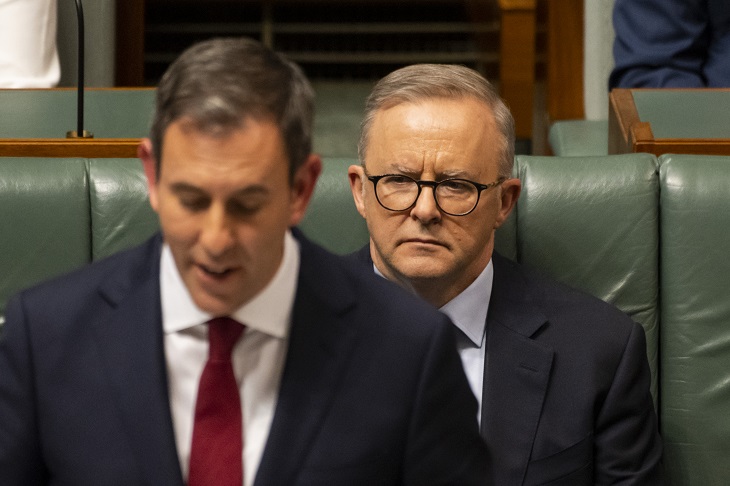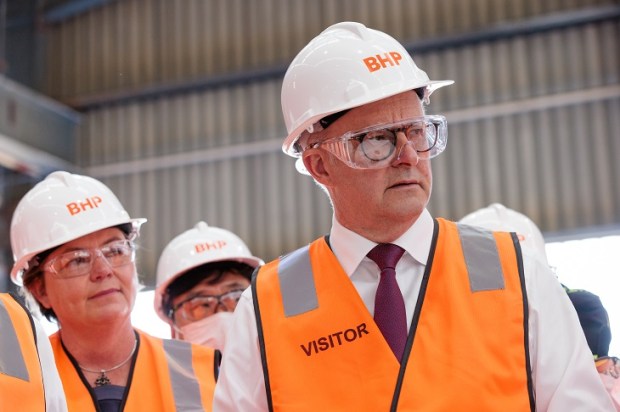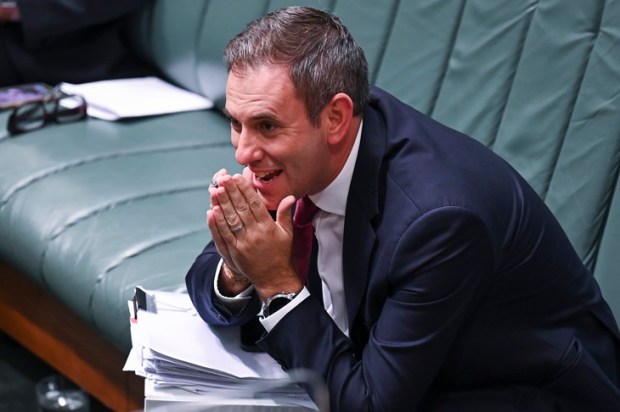Industrial relations lawyers in Australia each need to immediately buy themselves a new Porsche. Labor’s new Secure Jobs, Better Pay Bill is going to make IR lawyers so busy they’ll have trouble spending the money they are set to rake in.
The current Workplace Relations Act was the creation of the 2008 Rudd/Gillard Labor government. Quite sensibly the subsequent Abbott, Turnbull, and Morrison Coalition governments left the Act substantially untouched. This made sense because the Act served Australia very well.
The ‘trick’ with the current Act is that enterprise bargaining progressively died. This freed businesses and workers to adjust work arrangements to match economic realities. It also saved businesses pots of money through not having to pay big IR legal bills.
In theory, enterprise bargaining in Australia was supposed to enable each individual business to negotiate directly with its employees to create workplace arrangements that fitted the business. This is not how it worked or works.
The key process, instead, is that unions control the negotiation process. Unions write into the agreements that if a business is to change any work practices, it has to go back to the union for approval. Effectively this neuters the ability of managers to manage their business on a day-by-day basis. Businesses either give in to the unions or spend big on lawyers hoping to create some sense. It never happens! This process is entrenched in the commercial construction industry as a prime example.
But the Workplace Relations Act has a simple ‘out’ that took business managers a few years to realise. The trigger is that the Act does not force or require businesses either to negotiate with unions or to enter an agreement. Businesses can just say, ‘we’re happy with the current agreement’ and sit tight. Moreover, nothing in the Act stops businesses paying their workers more than is in their current but dormant agreement. They just pay more.
This is what’s been happening. More and more Australian businesses let their enterprise agreements sit in dusty bottom draws. But they paid their employees more where the economic and market situation enabled them to do so. In short, enterprise bargaining died.
IR lawyers have, of course, been horrified. Their incomes have dropped. Unions have been yelling ‘disaster’. Many of the biggest industry associations have also been bleating as their major income streams come from convincing their business members to have enterprise agreements.
But there was another aspect to big business’ complaints. They had often implemented agreements, with underhand compliance, even assistance, from unions, to pay workers less – say on weekends as one example. And these agreements were signed off by the Fair Work Commission.
This ‘keep the public dumb’ orchestrated scam was exposed by Coles shelf-filler Penny Vickers in 2017. In a true ‘Jane versus Goliath’ exercise, Penny took on the might of Coles and the retail workers union. She proved in the industrial relations court that the Coles/Union enterprise agreement was illegal.
Bang. The big business, big union, Commission-endorsed scam blew up. Large numbers of other big business illegal enterprise agreements were exposed. Massive amounts of back-pay had to be paid to tens of thousands of employees across large numbers of big businesses. Major embarrassment and ducking for cover followed for unions, managers and, in particular, for industrial relations lawyers who had orchestrated the scams.
Part of the ‘problem’ of course is that big business associations and unions jointly own and control the industry superannuation funds. They are in business together. They control more money than the banks. The Left (unions and more) have captured Australian capitalism. The ‘workers versus bosses’ war is a marketing smokescreen for this union/bosses institutionalised financial partnership.
Advance a few years and the memory of the scams has faded from public awareness. But the problem for big business/unions still remains. Big business wants to pay workers less (say, on weekends). Unions’ private-sector membership is in trash-can territory at around 9 per cent of the workforce – and declining.
During the Morrison government both sides – big business associations (think the Business Council of Australia) and unions – bitched for renewed enterprise agreements. Industrial relations lawyers enthusiastically joined in the call.
Salvation for this combination of unions, big business associations and lawyers has arrived in the form of the Albanese Labor government’s new IR Bill.
But as is true in any top-driven, authoritarian-style regime (surely this is not Australia?), double-crossing of supposed ‘partners’ is the way of power within its inner sanctum. Think Xi Jinping in China! In the Australian industrial relations context, big business has been shafted. Reap what ye sow I suppose!
The Secure Job, Better Pay Bill is full of legal complexity. In overview, the Bill will push businesses (big and small) into agreements they don’t want or need through a process over which they have little realistic control and to which they have little input.
First, the Bill creates triggers through which unions can force businesses to ‘negotiate’. Next, once caught in a forced negotiation trap, if businesses don’t want to agree to what unions want, they then can be dragged into a forced legally complex arbitration process. Businesses can be forced to enter an agreement whether they want one or not. Plus, forced agreements can be imposed across a wide range of business in any one business sector – for example, retailing or warehousing! Individual employees are excluded from the process other than acting as circus-type stooges for unions.
Lawyers, of course, will say that the description above is far too simplistic. They will say that there are many legal processes through which businesses can stop being forced. But such a response simply proves the point. The entire system will rely on paying lawyers big bucks.
But more, the new system will mean that legally entrapped negotiations will drag out for years. Workers’ pay increases will be delayed for years. And when new agreements are finally in place, the economic circumstances will have changed dramatically, and the agreements will be out of date with respect to (changed) business needs.
Further, imposing agreements across large business sectors will be a competition killer. Take supermarkets for example. Small family-owned supermarkets will predictably be forced into agreements that suit the big supermarket chains. It’s not just wage rates that matter, but the currently dormant ‘enterprise’ agreements always imposed rules on how managers must manage. Predictably we can wave goodbye to many small family-owned, local supermarkets in the future.
But look on the bright side. If you’re an industrial relations lawyer, you’ll have a new Porsche! Umm. Bright red sounds like a good colour!
Ken Phillips is Executive Director of Self Employed Australia
Got something to add? Join the discussion and comment below.
Get 10 issues for just $10
Subscribe to The Spectator Australia today for the next 10 magazine issues, plus full online access, for just $10.


























Comments
Don't miss out
Join the conversation with other Spectator Australia readers. Subscribe to leave a comment.
SUBSCRIBEAlready a subscriber? Log in